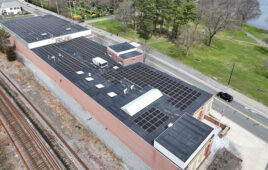The Solar Energy Industries Association (SEIA) and Vote Solar are calling on the California Public Utilities Commission (CPUC) to adopt a compensation framework for future residential solar customers that promotes equity and incentivizes sustainable market growth: net billing. In joint comments filed on March 15, SEIA and Vote Solar provided a comprehensive roadmap for rooftop solar growth that advances California’s goal to equitably electrify its economy with clean energy.
As California looks to meet its 100% clean energy goal cost-effectively and reliably, distributed generation (DG) and storage will play a central role. It is imperative that California prioritize solar accessibility and fairly compensate solar customers for the value that local and resilient clean energy delivers to the grid.
The proposal is the first time SEIA and Vote Solar are proposing net billing as an alternative to net metering in California. Under net billing, customers with DG assets would pay retail rates for energy delivered to them by their utility, and receive a separate payment as compensation for the excess energy that they generate.
“As the solar industry evolves in California, so must the policies we use to support it,” said Sean Gallagher, VP of state and regulatory affairs at SEIA. “Net billing will align the benefits of distributed solar with California’s grid needs, placing additional value on resilience and energy storage that can meet peak demands. The proposal will ultimately promote equity and preserve the value that solar brings to customers and the grid, maintaining long-term certainty in the California solar market.”
The proposal takes advantage of the state’s electrification time-of-use rates, which are designed to promote beneficial electrification and energy storage. The proposal provides a gradual phase out of net energy metering for future general market residential solar customers from 2023-2027 but preserves the current compensation structure for lower-income customers, helping to reduce their energy burden. The proposal satisfies cost effectiveness tests for general market residential customers without discriminatory fixed charges that reduce the economic benefits of installing solar and energy efficiency measures.
“We need policymakers to take bold action to break down barriers that still keep many low-income families and communities of color from being able to generate their own clean energy,” said Susannah Churchill, senior regional director, West, for Vote Solar. “This proceeding is an opportunity for the Commission to lead the country on promoting greater equity in rooftop solar access.”
Vote Solar filed a separate proposal yesterday aimed at increasing access for low-income customers with GRID Alternatives and Sierra Club, which SEIA supported.
The CPUC is considering next steps on net metering and g third iteration of the program, with a final decision expected by the end of 2021. Next, the two organizations will present the proposal to stakeholders and testify before the CPUC.
Read the comments here.
News item from SEIA






Without understanding the context of how net billing might work in California, its hard to say if this will benefit rate payers. However, in Nebraska some utilities have adopted net billing and it places solar customers at a significant disadvantage by requiring them to back feed twice their total consumption to offset their grid consumption because the excess solar is valued at half of retail value.
Not hard at all: solar will lose, Big Utility will win. If you look simply at NEM accounting, new solar will be adjusted on a monthly basis. The sun shines more in the summer, so homeowners will get charged more in winter and get paid less in summer.